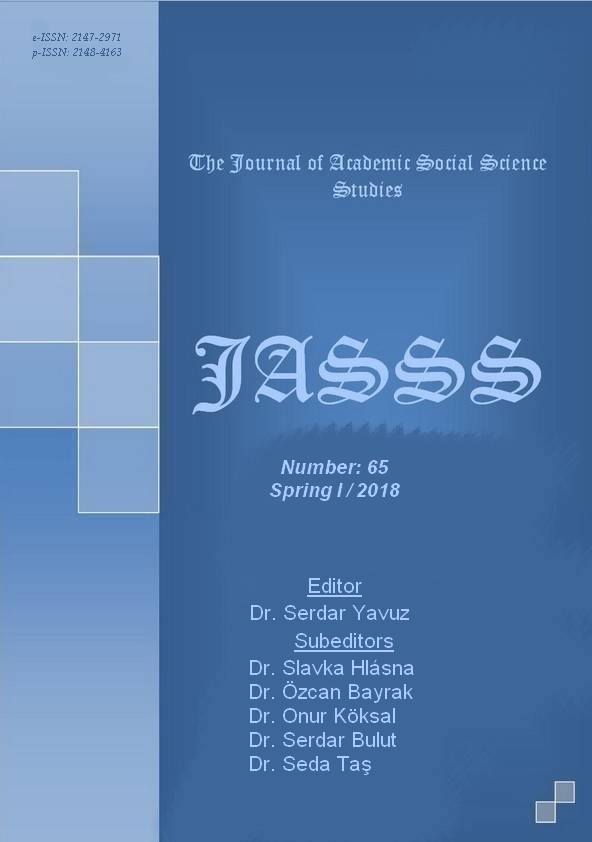Author :
Abstract
Egemenlik düşüncesi, Batılı modern siyaset teorisini önemli ölçüde etkileyen olgulardan biridir. Jean Bodin (1530-1596) tarafından kralın mutlak iktidarının meşruiyetinin sağlanması adına XVI. Yüzyılda ortaya konulan egemenlik teorisi, kendisinden sonraki tüm modern dönem düşünürlerini etkilemiştir. Bu bağlamda devletin ve kralın meşru iktidarını birey-devlet ilişkisi üzerinden dizayn etmeye çalışan Thomas Hobbes (1588-1679) ile devletin ve kralın iktidarının iktidarlarını “sınırlama” adına önemli fikirler öne süren John Locke’un (1632-1704) görüşlerinin incelenmesi önemlidir. Çünkü bu iki İngiliz düşünürün Batılı modern devlet teorisinin daha sonraki düşünsel ve pratik gelişiminde etkileri muhakkaktır. Bu çalışmada öncelikle “egemenlik” olgusunun tarihsel çerçevede gelişimi, siyasal düşünceler tarihinin önemli düşünürlerinin görüşleri çerçevesinde ele alınacaktır. Daha sonra da egemenlik olgusunun siyasal ve sosyal boyutu ise Bodin’in görüşleri ağırlıklı olarak teorik bir analize tabi tutulacaktır. Daha sonra Thomas Hobbes ile John Locke’un egemenlik anlayışları hem ayrı ayrı incelenecek, hem de ikisinin egemenlik anlayışları bir karşılaştırmaya tabi tutulacaktır. Bu şekilde Hobbes ve Locke’un egemenlik anlayışlarının farklılıkları teorik olarak ortaya konulmaya çalışılacaktır. Böylece günümüzdeki Batılı ideolojik ve tarihsel olarak oluşmuş olan modern devlet anlayışının hangi düşünceler üzerinden değiştiği ve geliştiğine yönelik bir çıkarım yapmaya çalışılacaktır. Çalışmada konuyla ilgili birincil ve ikincil kaynaklar faydalanılacak ve “içerik analizi yöntemi” kullanılacaktır.
Keywords
Abstract
The “sovereignty” idea is one of the phenomena which has significantly affected the theory of Western modern political science. The sovereignty idea which was set forth by Jean Bodin (1530-1596) in order to enable the ruler to set up the legitimacy of his absolute power has substantially affected all of the succeeding modern period thinkers. In this connection, it is important to review the ideas of Thomas Hobbes (1588-1679) who has tried to design the legitimate power of the Ruler according to the relation between the individual and the state and John Locke (1632-1704) who has set forth important ideas in restricting the powers of the state and the King. There is no doubt that these two British thinkers have influenced the succeeding theoretical and practical development of the Western modern state theory. In this study, the development of "sovereignty" in historical context will be considered within the framework of the views of the important thinkers of political thought. Later, the political and social dimension of the sovereignty will be subject to a theoretical analysis of Bodin's views. Later, in this paper, the sovereignty understanding of Thomas Hobbes and John Locke shall be examined both as separately and it shall also be subjected to a comparative analysis as well. In this way, the differences of Hobbes and Locke's understanding of sovereignty will be theoretically sought. Thereby a deduction shall be attempted to be extracted regarding how the present western understanding which was ideologically and historically were formed or developed on which ideas or thoughts. In this study primary and secondary sources regarding the subject shall be reviewed and “content analysis method” shall be used.





